Related Research Articles

Thomas Jefferson University is a private research university in Philadelphia, Pennsylvania. Established in its earliest form in 1824, the university officially combined with Philadelphia University in 2017. The university is named for U.S. Founding Father and president Thomas Jefferson. It is classified among "R2: Doctoral Universities – High research activity".

Benjamin Rush was an American revolutionary, a Founding Father of the United States and signatory to the U.S. Declaration of Independence, and a civic leader in Philadelphia, where he was a physician, politician, social reformer, humanitarian, educator, and the founder of Dickinson College. Rush was a Pennsylvania delegate to the Continental Congress. He later described his efforts in support of the American Revolution, saying: "He aimed right." He served as surgeon general of the Continental Army and became a professor of chemistry, medical theory, and clinical practice at the University of Pennsylvania.
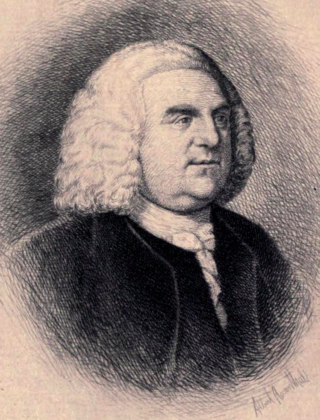
William Allen was a wealthy merchant, attorney and chief justice of the Province of Pennsylvania, and mayor of Philadelphia during the colonial era. At the time of the American Revolution, Allen was one of the wealthiest and most powerful men in Philadelphia. A Loyalist, Allen agreed that the colonies should seek to redress their grievances with British Parliament through constitutional means, and he disapproved of the movement toward independence.
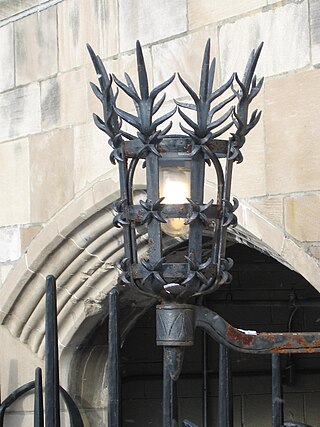
Samuel Yellin (1884–1940), was an American master blacksmith, and metal designer.
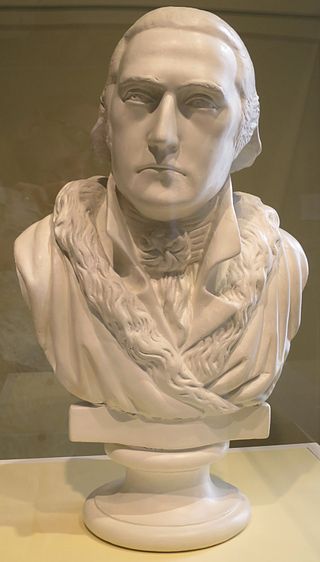
Philip Syng Physick was an American physician and professor born in Philadelphia. He was the first professor of surgery and later of anatomy at the University of Pennsylvania medical school from 1805 to 1831 during which time he was a highly influential teacher. Physick invented a number of surgical devices and techniques including the stomach tube and absorbable sutures. He has been called the "Father of American Surgery."

Walter Jackson Freeman II was an American physician who specialized in lobotomy.
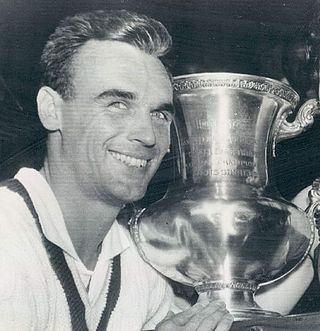
Elias Victor Seixas Jr. is an American former tennis player.
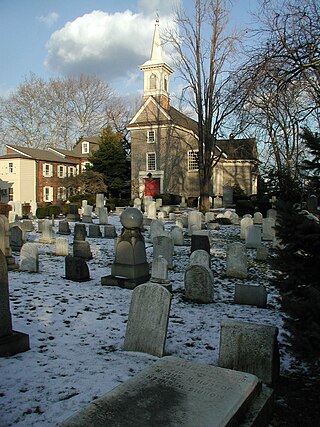
Queen Village is a residential neighborhood of Philadelphia, Pennsylvania, United States that lies along the eastern edge of the city in South Philadelphia. It shares boundaries with Society Hill to the north, Bella Vista to the west and Pennsport to the south. Street boundaries are the south side of Lombard Street to the north side of Washington Avenue, the Delaware River to 6th Street, encompassing two principal commercial corridors, South Street and Fabric Row on 4th Street.

Satterlee General Hospital was the largest Union Army hospital during the American Civil War. Operating from 1862 to 1865 in Philadelphia, Pennsylvania, its physicians and nurses rendered care to thousands of Union soldiers and Confederate prisoners. After its patient population spiked following the battles of Bull Run and Gettysburg, this hospital became the second-largest in the country with 34 wards and hundreds of tents containing 4,500 beds.
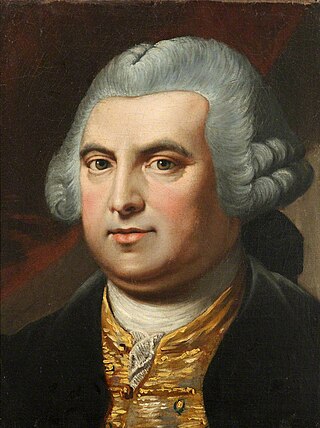
James Hamilton, son of the American lawyer Andrew Hamilton, was a lawyer and governmental figure in colonial Philadelphia and Pennsylvania. He served two terms as deputy governor of the Province of Pennsylvania from 1748 to 1754 and from 1759 to 1763. From 1745 to 1747, he was the mayor of Philadelphia

Americanization is the process of an immigrant to the United States becoming a person who shares American culture, values, beliefs, and customs by assimilating into the American nation. This process typically involves learning the American English language and adjusting to American culture, values, and customs. It can be considered another form of, or an American subset of Anglicization.

The University of Pennsylvania School of Dental Medicine is the dental school of the University of Pennsylvania (Penn), an Ivy League university located in Philadelphia. It is one of twelve graduate schools at Penn and one of several dental schools in Pennsylvania.

Otho Leroy Davis was an American football athletic trainer. He was the head athletic trainer for Kent State University from 1957-65.
David DiChiera was an American composer and founding general director of Michigan Opera Theatre.
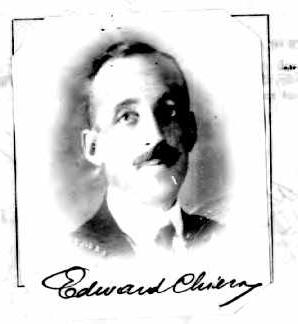
Edward Chiera was an Italian-American archaeologist, Assyriologist, and scholar of religions and linguistics.
Washington Medical College was a medical school in Baltimore, Maryland. It was founded in 1827, incorporated in March 1833 as TheWashington Medical College of Baltimore, renamed to Washington University of Baltimore in 1839, closed in 1851, revived in 1867 as Washington University of Baltimore, and disbanded in 1878. The remains were absorbed into the College of Physicians and Surgeons, later merged with the University of Maryland School of Medicine.

The Woman's Medical College of Pennsylvania (WMCP) was a Philadelphia medical college founded for women in 1850. It was the second medical institution in the world established to train women in medicine to earn the M.D. degrees after the New England Female Medical College in Boston, which was established two years earlier in 1848.

Charles Bingham Penrose was an American gynecologist, surgeon, zoologist and conservationist, known for inventing a type of surgical drainage tubing called the Penrose drain. He was a professor at the University of Pennsylvania, wrote several editions of a textbook on medical problems in women, and was named a Fellow of the American Association for the Advancement of Science.
James Forten School (1822–?), originally known as Mary Steet School then Lombard Street Colored School and later Bird School or Mr. Bird's School, was the first public school for African Americans in Philadelphia, Pennsylvania.
References
- ↑ Richard A. Varbero, "Philadelphia's South Italians in the 1920s" in Allen Freeman Davis and Mark H. Haller, The Peoples of Philadelphia: A History of Ethnic Groups and Lower-class Life: 1790-1940, (University of Pennsylvania Press), p. 257.